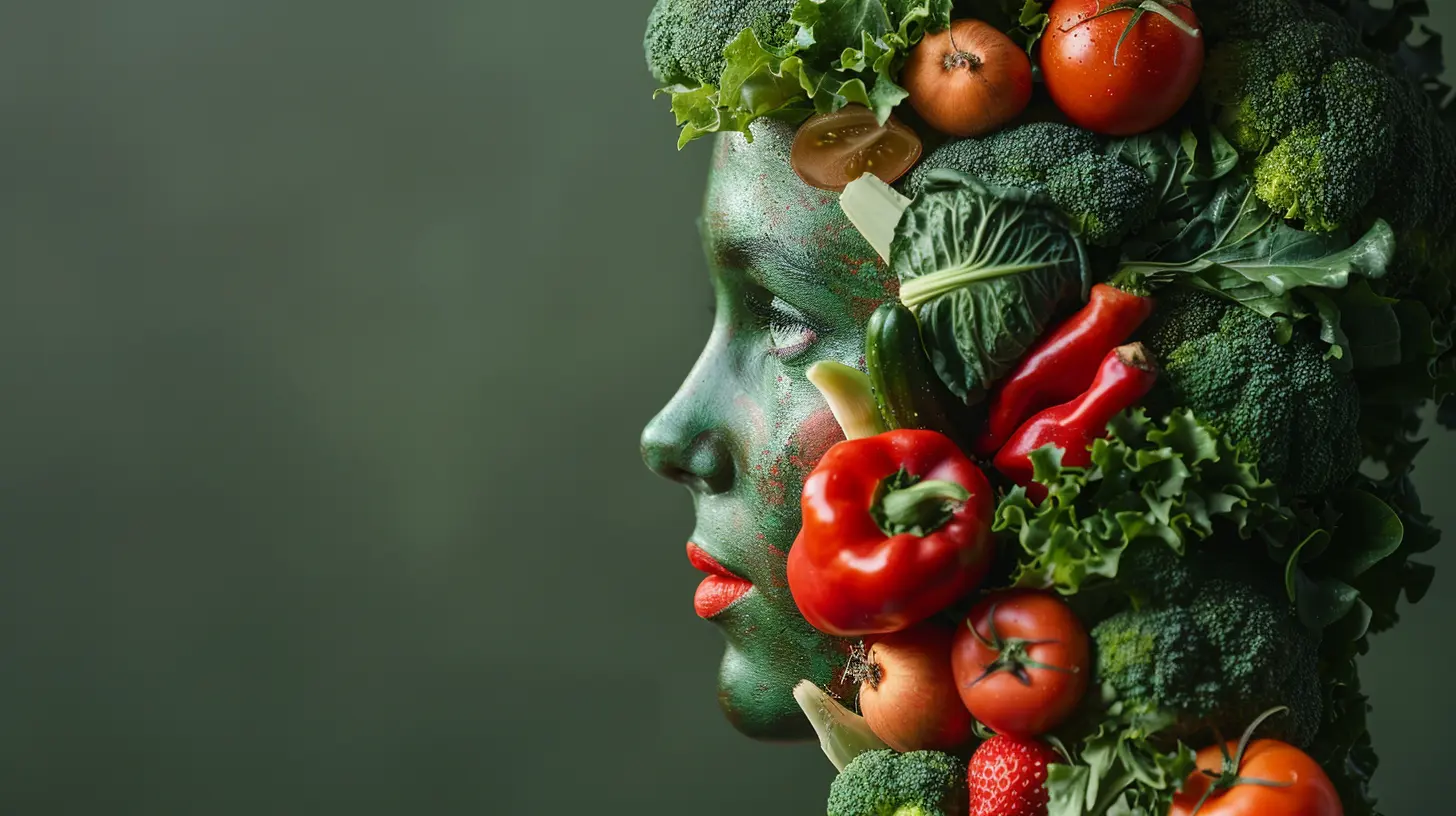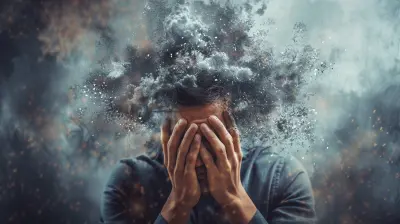Helping Teens Develop a Healthy Body Image for Better Mental Health
6 August 2025
Let’s be real for a second—being a teen is tough. Between social media, peer pressure, and all the awkward changes during puberty, it's no wonder so many teens struggle with how they see themselves. Body image issues? They’re more common than you think. And they don't just mess with how someone feels about their reflection—they can seriously impact mental health too.
In this post, we’re diving deep into why body image matters for teens, how it connects to mental health, and what parents, teachers, and even teens themselves can do to build a healthier relationship with their bodies. So, grab a comfy seat, and let’s get into it.
What Is Body Image Anyway?
Body image is basically the way you see your body and how you think others perceive it. It includes what you believe about your appearance, your feelings about your body, and how you behave as a result.For teens, body image can become a big deal really fast. At an age where fitting in seems like life or death, even a small insecurity can feel huge.
And the scary part? Negative body image isn't just about low confidence. It can lead to anxiety, depression, eating disorders, and even self-harm if left unchecked.
Why Teens Are More Vulnerable
Ever wonder why teenagers, out of all people, are so affected by body image? Let’s break it down.1. Puberty Changes Everything
Hormones are going wild, bodies are developing at different rates, and all those changes can make teens super self-conscious. One day you look like a kid, the next day... not so much. That transition is jarring, and it doesn't help when you're constantly comparing yourself to others.2. The Social Media Effect
Instagram, TikTok, Snapchat—all fun, right? But here’s the kicker: they’re also full of airbrushed, filtered, highlights-only versions of reality. When teens scroll through perfect selfies and shredded gym bodies, it's easy to feel like they don’t measure up.It’s like mental junk food—quick hits of comparison that leave you feeling worse than before.
3. Peer Pressure and Standards
Let’s not forget the pressure from friends, classmates, and even family. Whether it's teasing, side comments, or unrealistic expectations, all of it fuels body dissatisfaction.
The Link Between Body Image and Mental Health
You might be thinking, "Okay, so teens feel bad about their looks. How’s that a mental health crisis?"Here’s the truth: poor body image can trigger a domino effect on a teen’s mental health.
Anxiety and Depression
Teens with negative body image often report higher levels of anxiety and depression. That inner critic telling them they aren’t “good enough” in the looks department? It can spill over into other areas of their life—and fast.Disordered Eating
From skipping meals to full-blown eating disorders like anorexia and bulimia, body image issues can lead to dangerous habits. And these disorders aren’t just physical; they come with serious emotional and psychological consequences.Social Withdrawal
When teens don’t feel good about their appearance, they might avoid social situations, sports, or even school. Isolation is a sneaky mental health killer.
So, How Do We Help Teens Build a Healthier Body Image?
The good news? Body image isn’t set in stone. With the right support and tools, teens can learn to appreciate and even love the skin they’re in. Here’s how:1. Start the Conversation Early
Kids pick up on body ideals way younger than most people think. Talking about body diversity, self-worth, and media influence early on sets the stage for healthier attitudes.- Use age-appropriate language.
- Point out unrealistic representations in media.
- Encourage critical thinking: “Do you think that image was edited?”
2. Model Positive Body Talk
Parents, this one's for you. Your kids are listening—even when you think they aren’t. If you’re constantly criticizing your own body, they’ll internalize that.Try this instead:
- Compliment people on traits other than appearance.
- Avoid negative body talk.
- Focus on what your body can do, not just how it looks.
Think of it like planting seeds. The way you speak about yourself teaches them how to speak to themselves.
3. Promote Healthy Habits Without Obsession
Yes, eating well and moving your body matter. But it should never be about punishment or reaching a “perfect” size.Encourage teens to:
- Eat for energy and strength, not restriction.
- Find activities they enjoy (not just gym workouts).
- Sleep well and manage stress.
Make “health” about feeling good, not just looking good.
4. Help Them Curate Their Social Media
Let’s not pretend we’re going to rip their phones away. But we don’t have to let Instagram be the enemy either.- Encourage following body-positive creators.
- Teach them to spot edited or fake posts.
- Remind them that social media is a highlight reel—not real life.
Social media can either tear down self-esteem or build it up, depending on who they follow.
5. Normalize All Body Types
Representation matters. Really, it does.When teens see a variety of bodies, abilities, and appearances being celebrated, it expands their definition of “normal” and “beautiful.”
- Watch shows and movies with diverse casts.
- Read books and stories featuring different body types.
- Celebrate uniqueness in real life too.
What Teens Can Do to Feel Better in Their Skin
If you're a teen reading this, first off—you're awesome for caring about your mental health. Here are some legit tips just for you.1. Challenge Your Negative Thoughts
Catch yourself thinking something harsh about your body?Pause—and ask yourself: “Would I say this to a friend?” If the answer is no, don’t say it to yourself either.
2. Celebrate What Your Body Can Do
Instead of obsessing over a flat stomach or toned arms, think about what your body lets you do every day. Walking, laughing, hugging, dancing—that’s powerful stuff.3. Surround Yourself with Positivity
Don’t hang with people who body-shame, period. Your circle should lift you up, not tear you down.Fill your feed and your life with positive, supportive vibes.
4. Give Yourself a Break
Seriously—everyone has insecurities. No one feels amazing about their looks 24/7.It’s okay to have off days. Be kind to yourself and remember: your worth isn’t tied to your appearance.
Mistakes to Avoid When Talking to Teens About Body Image
Sometimes, even with the best intentions, adults can mess this up. Here’s what not to do:- Don’t comment on kids’ weight or size. Even “positive” comments can be harmful.
- Avoid moralizing food. No more “good” or “bad” foods—just balance.
- Don’t praise thinness. Compliment character, effort, kindness—not just looks.
- Never compare them to others. Every body is different. Period.
When to Seek Professional Help
Sometimes, body image struggles go deeper than surface-level insecurities. If you notice these, it might be time to bring in a therapist:- Rapid weight loss or gain
- Obsession with food or exercise
- Avoiding social situations
- Signs of depression or anxiety
- Self-harming or extreme self-criticism
Therapists who specialize in teen mental health can make a world of difference. And there’s zero shame in asking for help.
Final Thoughts
Helping teens develop a healthy body image isn't just a kindness—it's a necessity. Because when teens feel okay in their own skin, everything else gets better: their confidence, their relationships, their mental health.So, let’s ditch the unrealistic expectations. Let’s stop putting bodies on pedestals. Let’s teach the next generation that who they are is so much more than what they look like.
If we do that, we’re not just helping them survive these awkward, confusing years—we're helping them thrive.
all images in this post were generated using AI tools
Category:
Mental Health In AdolescenceAuthor:

Nina Reilly
Discussion
rate this article
1 comments
Jaxon Schultz
Empowering teens with confidence fosters positive body image and mental health.
August 16, 2025 at 3:01 PM

Nina Reilly
Absolutely! Empowering teens is crucial for cultivating a positive body image and enhancing their overall mental well-being.


